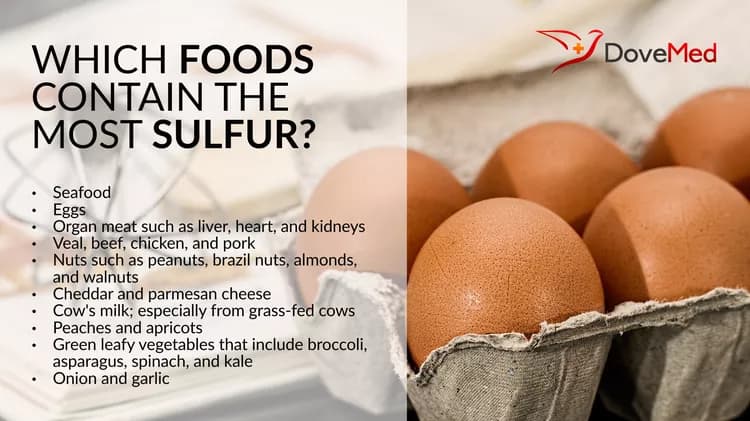Sulfur (sulphur) is one of the important mineral elements of the human body. As per the National Institutes of Health, sulfur is the 3rd most abundant mineral found in the human body (in terms of body weight). It is found in all cells, especially in the skin, hair, and nails. A regular and protein-rich diet that consists of seafood, eggs, dairy products, meat and meat products, and nuts may make-up for the body’s requirement of nutritional sulfur. Water could also be a potential source of sulfur in some cases.
Sulfur is indispensable to a few amino acids found in the body, which are responsible for various biochemical reactions and syntheses of proteins. Many enzyme activities and biological processes are dependent on sulfur, without which various metabolic functions may suffer. Sulfur is present in keratin, which is a main structural component of the skin, hair, and nails.
Every cell uses oxygen for its function and biochemical processes; this cellular respiration is enabled through sulfur-contained amino acids. Sulfur also plays the role of a detoxifying agent by removing certain toxic substances, like drugs, from the body. Other health benefits of sulfur include enabling healthy joints through the formation of healthy connective tissues such as cartilage and ligaments. Hence, sulfur is also used in the treatment of arthritis that involves the joints.
The US National Academy of Sciences Food and Nutrition Board, does not prescribe a recommended dietary allowance (RDA) for sulfur. Generally sulfur-deficient states do not arise, and most of our body’s sulfur requirement is met through a well-balanced diet that we consume.
Foods high in sulfur include the following:
- Seafood: A wide variety of seafood contains high levels of protein. These include lobster, crab, scallops, mussels, prawns, oysters, and fish like sardines, salmon, haddock, and cod
- Eggs
- Organ meat such as liver, heart, and kidneys
- Veal, beef, chicken, and pork
- Nuts such as peanuts, brazil nuts, almonds, and walnuts
- Cheddar and parmesan cheese
- Cow’s milk; especially from grass-fed cows
- Peaches and apricots
- Green leafy vegetables that include broccoli, asparagus, spinach, and kale. These are also called ‘super vegetables’ and include all green leafy vegetables belonging to the Brassicaceae family
- Onion and garlic
Low levels of sulfur may occur in regions where the soil is poor in sulfur. Also, having a diet that is protein-poor and eating low sulfur foods may lead to a sulfur deficient condition. But, it is always recommended to take the advice of a suitable healthcare professional before bringing about any alteration to your regular food habits and diet.
Related Articles
Test Your Knowledge
Asked by users
Related Centers
Related Specialties
Related Physicians
Related Procedures
Related Resources
Join DoveHubs
and connect with fellow professionals


0 Comments
Please log in to post a comment.